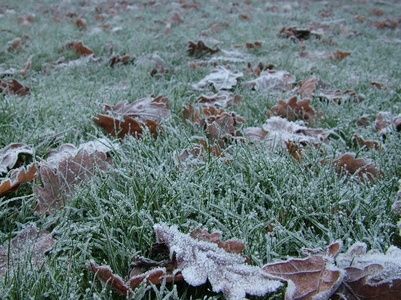READY TO GET STARTED?
REQUEST A FREE ESTIMATE
Fill out the form below or call (888) 466-7849 for a free, no-obligation estimate.
This past weekend was a great preview of the warm Spring weather that is coming. The sun was shining, birds chirping, and we could comfortably be outside without multiple layers of clothing. It seems that we have almost (I repeat, almost) escaped the harsh winter that we’ve been experiencing.
After our spring preview, its made many people think about their lawn and how they can enjoy it in the upcoming months. After the treacherous winter weather, it may need a little more TLC than usual. Northwest Lawn Care would like to help you get your lawn back into tip-top GREEN shape!
Our FREE lawn care analysis is an in-depth inspection of your lawn that will help us develop a comprehensive plan that is unique to the needs of your lawn. Call us today or visit us online to schedule your analysis to have your lawn healthy and green for the spring.
Winter weather can take a toll on your lawn. Cold temperatures, snow, ice, and freezing rain (all of which we have experienced A LOT of recently) can damage lawns. When these weather conditions sit on grass for extended periods of time it can damage, even kill, warmer season grasses. Root damage is also a concern.
When ice forms on cooler season grasses it can make the blade brittle and easy to break. It’s best to limit activity on cooler season grasses when there has been long periods of ice on the ground.
As spring approaches and your lawn starts to green you may notice blotchy areas due to winter kill. This is often in areas that took longer to thaw out due to lack of sunlight or a larger collection in one area of the lawn.
The best way to help restore your lawn after winter damages is to learn from past experiences because history tends to repeat itself. If you had an area that collected more snow because it was in a low lying area then make sure to level out the area so you won’t have the same problem next time it happens. Also, a healthy lawn is much more resilient. Keeping a healthy lawn year around can improve it’s durability during the winter months.
To keep that lawn healthy all year, call Northwest Lawn Care for expert care!
 Just because it’s winter doesn’t mean no yard work. In fact, fall and winter lawn maintenance is vital to a healthy green lawn in the warmer months. Here are some things to consider when caring for your lawn in the winter:
Just because it’s winter doesn’t mean no yard work. In fact, fall and winter lawn maintenance is vital to a healthy green lawn in the warmer months. Here are some things to consider when caring for your lawn in the winter:
Your lawn is supposed to be enjoyed. So whether it’s having cook outs in the summer, raking leaves in the fall, or building snowmen in the winter…take care of your lawn. And for those of you who like to spend your time and effort elsewhere, call a professional lawn care service to take on the task for you. If you’re looking for lawn care in Atlanta call Northwest Lawn Care.
Q:Why am I seeing pests like ants in my home in the middle of winter?
A: It has been a strange year. From a personal perspective, no snow and warmer than usual temperatures, have been very nice. From a pest perspective, I fear we will be seeing some unusual pest movements this year. Recently we have had several wasp and bee complaints, ants are running wild and termite swarms have occurred. Setting us up for a very unusual spring and summer. Ants have been especially problematic because they usually are not around for awhile, but they’re back.
What do you do? First, keep areas clean, spills and dropped food can attract the ants from a distance. Pick up pet food and water, this can also act as an attractant. Watch for leaking hoses and garden or yard tools that are left wet after work, this attracts pests to the structure and could lead them inside. The best way to protect yourself is to have a professional exterminator your structure for entrances and give recommendations to reduce the potential hiding areas around your place.
Jerry Hatch
Technical Director
BCE CEHT CP-FS
LEED Green Associate
If you have a question about your pest control, ASK THE MOUSE!